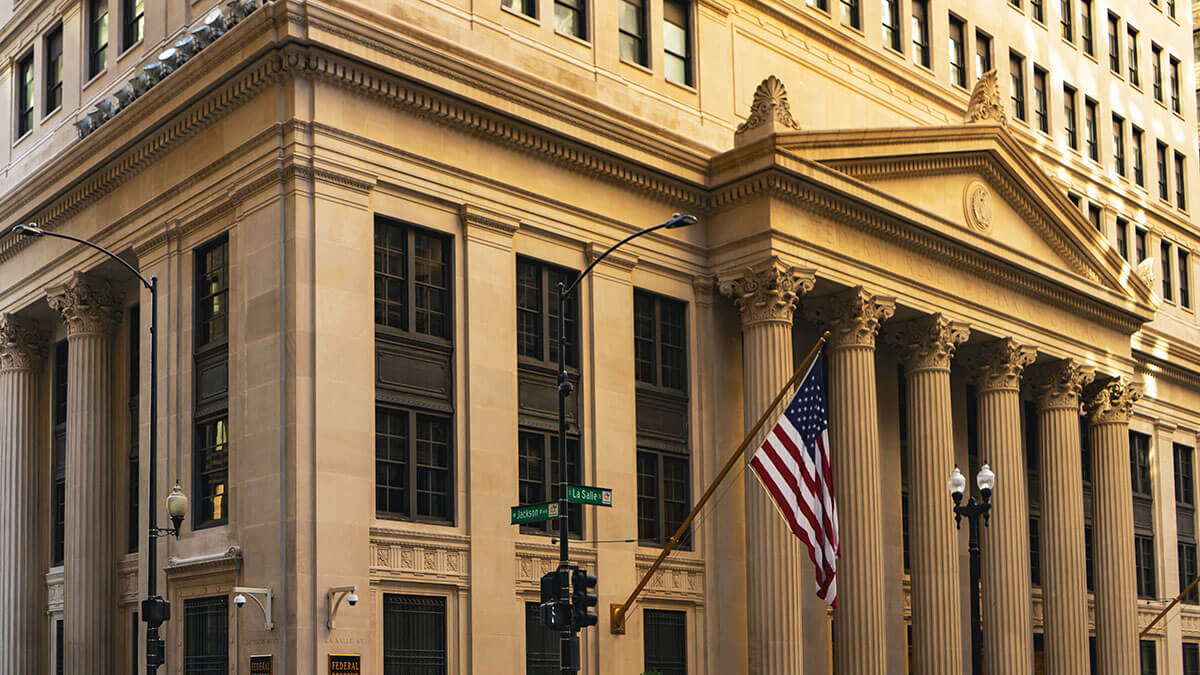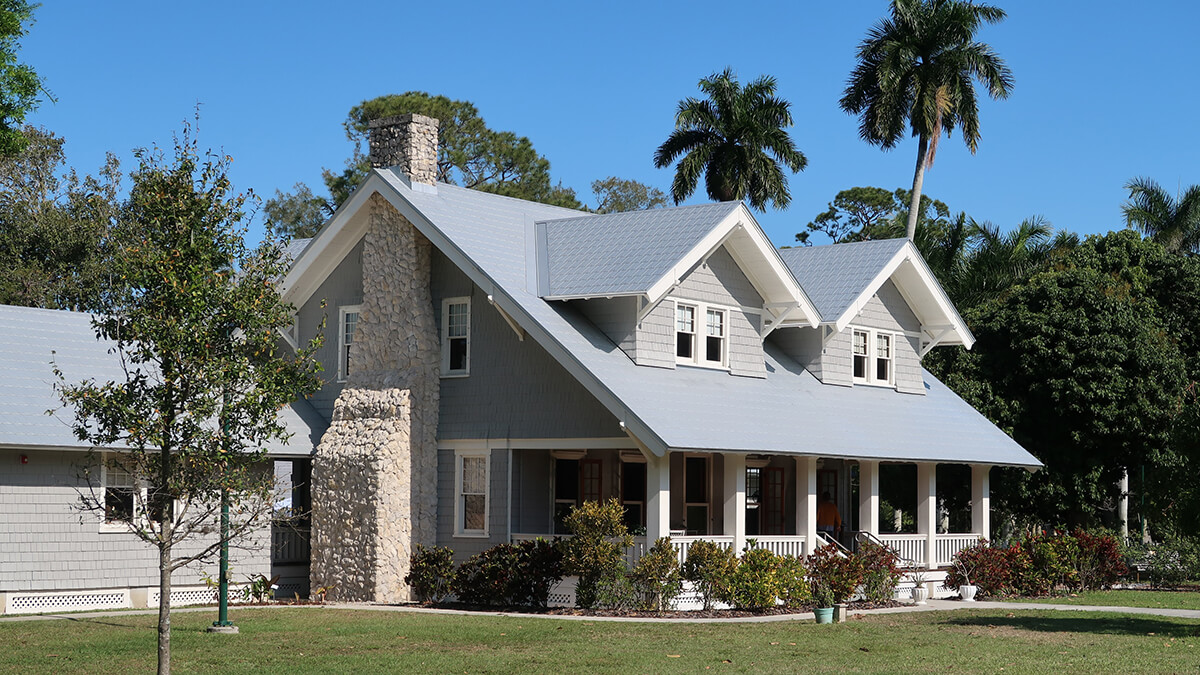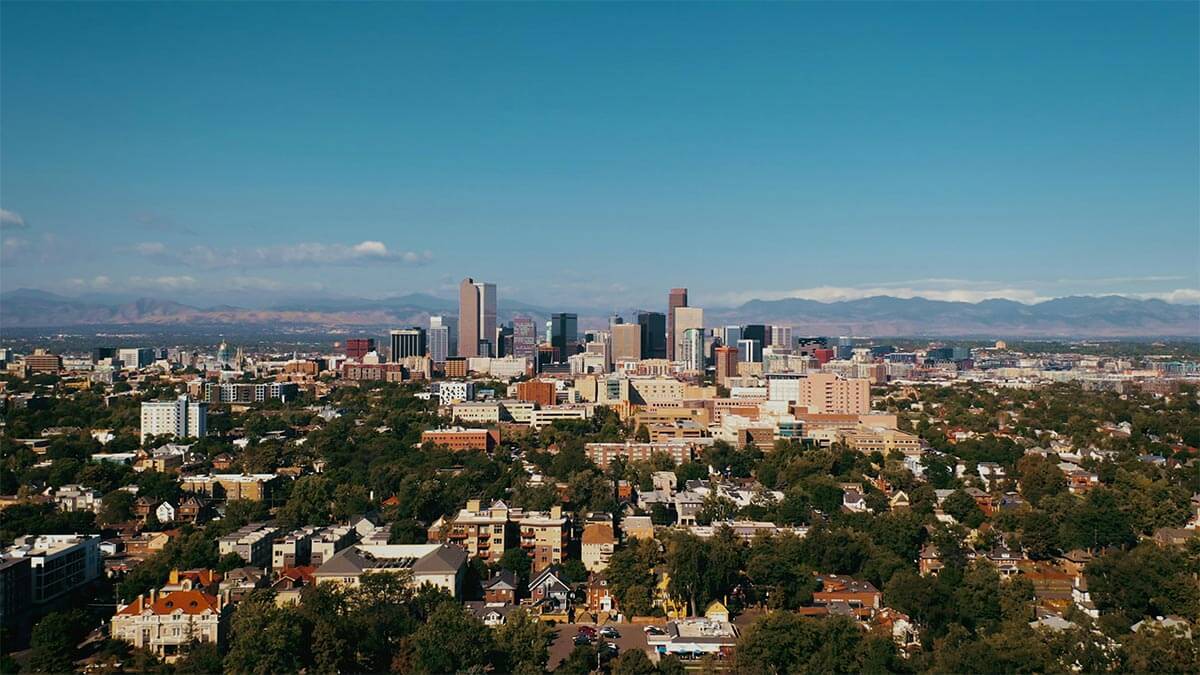The average 30-year fixed-rate mortgage rate is over 6.35%. This is compared to the all-time low of just under 3% back in 2020. Does this increase in interest rates combined with concerns about inflation and the risk of a recession have anything to do with a housing market crash?
It all depends. As a homeowner, you may be wondering what happens to interest rates if the housing market crashes. The answer isn’t simple, as many factors contribute to interest rates.
In this comprehensive guide, we’ll walk you through everything you need to know about interest rates during a housing crash and what to expect.
Discover your home’s worth online for free in minutes!
Is the housing market going to crash?
This is a question on the minds of many Americans, given the recent volatility in the stock market and concerns about the overall health of the economy.
While it’s impossible to predict the future with 100% accuracy, there are a few factors that suggest that the housing market could be headed for trouble but not a full market crash.
For one, home prices have been rising at an unsustainable pace in recent years, outpacing wage growth and making it difficult for potential buyers to save for a down payment.
In addition, the number of homes being built is not keeping up with population growth, which could eventually lead to a shortage of available homes and put upward pressure on prices.
Finally, interest rates are expected to continue to rise to combat inflation and other economic concerns. This could make borrowing more expensive and further reduce affordability for millions of younger buyers just entering the housing market.
So while there’s no guarantee that the housing market will crash, there are certainly some risks that potential buyers should be aware of. That being said, there are always a few key factors you can look at to predict a housing market crash.
If we break down these key factors below then you can see that while the housing market isn’t as great as it was during the early days of 2020, it doesn’t appear that we’re headed for a full-on market crash either.
Home inventory
Home inventory is a key factor in predicting a housing market crash. By tracking the number of homes on the market and measuring it against the number of home sales, analysts can get a clear picture of whether the market is oversupplied or undersupplied.
When there are more homes for sale than there are buyers, prices will eventually drop as sellers become desperate to unload their property. This can lead to a sharp decline in home values and a housing market crash.
Therefore, it’s important to keep an eye on home inventory levels to predict when a housing market crash may occur.
What’s that currently look like? Inventory is at a record low. According to The National Association of Realtors, there is about a 2.4-month supply of homes currently on the market. This is up from the beginning of 2022.
However, it indicates that buyers have a bit of competition. This helps balance out the supply and demand equation and makes a total price crash less likely.
Building demand
One of the most important indicators of a healthy housing market is building demand. This refers to the number of new homes that are being built to meet the needs of a growing population.
When building demand is strong, it’s an indication that there is consistent demand for housing and that prices are stable. However, when building demand starts to slow down, it can be a sign that a housing market crash may be on the horizon.
This is because when there are more homes on the market than there are buyers, prices will start to drop to entice buyers. What’s the current building demand in today’s housing market?
After the housing market bubble burst in 2008, builders scaled way back on their operations. The housing market hasn’t really met demands since then. This ensures that we’re not going to end up with a market that has more properties than buyers.
Similar to the home inventory factor mentioned above, this helps balance out the supply and demand equation.
Demographic trends
Certain demographics are coming of age in a way that helps ensure there will be almost inevitable demand for the foreseeable future. This includes millennials who are in their prime homebuying years and sometimes have no other choice but to invest in a home.
It also includes other demographics, however, such as Hispanics. The number of Hispanic homeowners is expected to skyrocket by 2040.
The demographic will account for the largest household growth throughout the next 15 years, helping ensure that there will be strong demand for homes regardless of how the market shifts over the next couple of years.
Lending standards
When lending standards are lax, it’s easier for buyers to obtain financing, which can drive up prices and lead to an unsustainable bubble. This was the case during the 2008 financial crisis when “liar” loans became popular.
On the other hand, when lending standards are tight, it can act as a brake on the housing market and help to prevent prices from rising too quickly.
For this reason, lending standards are closely watched by economists as a potential warning sign of a housing market crash. By looking at lending standards, they can often predict when a market is getting too hot and could be headed for a fall.
Lending standards are still somewhat strict, and that’s good news. We’re not currently at risk of seeing prices driven up by artificial buying power that loose lending causes. That spells good news for the housing market despite interest rate increases.
Foreclosure activity
Finally, you can measure foreclosure activity to gauge whether or not a housing market crash is near.
When foreclosure activity increases, it is generally an indication that more homeowners are struggling to make their mortgage payments. This often leads to an increase in delinquent loans and foreclosures, which can eventually lead to a decrease in home prices.
While foreclosure activity is not the only factor that can predict a housing market crash, it is often considered to be one of the most important indicators.
Currently, there isn’t much foreclosure activity. However, if economists are correct then we’ve just entered a recession and this could change in the future.
How does a market crash affect homeowners?
When prices drop, many homeowners find themselves “underwater,” owing more on their mortgage than their home is worth. This can make it difficult to sell the property or refinance the loan.
In addition, a market crash can lead to foreclosures, as borrowers who can no longer afford their mortgage payments may be forced to give up their homes. This can have a ripple effect on the economy, as foreclosures often lead to lower property values in the surrounding area.
As a result, homeowners who were not directly affected by the market crash may still see the value of their home decline. In the end, a market crash can have a significant impact on both the economy and individual homeowners.
However, if the housing market specifically crashes, does that affect the interest rates of mortgage loans? When the housing market crashes, it can have a ripple effect on the economy as a whole. One of the most immediate impacts is on mortgage interest rates.
As housing prices plummet, banks become much more cautious about lending money for home loans. To offset the increased risk, they typically raise interest rates on mortgages. This makes it more difficult for people to buy homes, further exacerbating the housing crisis.
In addition, a housing market crash can also lead to job losses and a decrease in consumer spending, both of which can contribute to an economic downturn. As a result, a housing market crash can have severe implications for the entire economy.
That being said, it’s important to keep in mind the factors mentioned above. It doesn’t appear that we’re headed for a total housing market crash. At the very least, it doesn’t look like we can expect a crash like the one seen in 2008.
What happened to homeowners when the housing market crashed in 2009?
First of all, it’s important to clarify that interest rates aren’t anywhere near as high as they were during previous recessions. For example, the average interest rate on a 30-year fixed-rate mortgage just before the housing crisis in 2008 was about 6%.
This is about where we’re at right now, but it’s much lower than mortgage loan interest rates during previous recessions. In early 2000, average interest rates hovered around 8%.
However, during the 1980s when the country experienced similar inflation rates as we are seeing today, mortgage interest rates went as high as 18%. So, given the overall economic landscape, it’s not likely that we’ll see interest rates get as high as they once were.
Still, what happened to homeowners during the previous housing market crash? In 2009, the housing market crash had a devastating impact on homeowners across the United States.
Property values plummeted, leaving many people owing more on their mortgages than their homes were worth. Foreclosures reached an all-time high, and millions of families lost their homes.
For those who were able to keep their homes, the value of their largest investment was deeply diminished. The housing market crash also had a ripple effect on the economy, as consumer spending declined and unemployment rose.
It took years for the housing market to recover, and many homeowners are still feeling the effects of the crash.
How are interest rates determined?
Before diving into interest rates during a housing crash, it’s worth answering the question of how interest rates are determined. A country’s central bank controls interest rates. In this case, that’s the Federal Reserve.
However, their decisions are largely based on the state of the economy. In short, it’s all about supply and demand.
In a market economy, the law of supply and demand is the basic law that regulates prices. The amount of goods supplied by producers (supply) equals the amount demanded by consumers (demand).
When there is more demand than supply, prices go up. And when there is more supply than demand, prices go down. The law of supply and demand applies to all markets, including the market for money or “interest rates.”
The “interest rate” is the price that people pay to borrow money. The higher the interest rate, the more people are willing to save (lend their money) instead of spending it. That’s because they can earn a higher return on their savings.
In a market economy, changes in the “demand for money” (the amount people want to borrow) or the “supply of money” (the amount people want to lend) will cause changes in interest rates.
The same process works in reverse when it comes to lending money. When there is more money available than people want to borrow (more “supply” than “demand”), then interest rates go down. That’s because lenders have to compete with borrowers by offering lower interest rates to find someone who wants their loan.
Thus, in a market economy, changes in either the demand for or supply of loans will cause changes in how much people are willing to pay for those loans. Currently, the Fed is increasing interest rates to try and influence this supply and demand.
If the housing market crashes what happens to interest rates?
Okay, now that you know how interest rates work, the question remains. If the housing market crashes will interest rates go up? In general, interest rates are likely to rise if the housing market crashes.
This is because when the housing market goes down, it’s often a sign that the overall economy is doing poorly too. And when the economy does poorly, investors typically look for safer investments like government bonds and mortgages.
This drives up demand for mortgages, which in turn drives up interest rates. Of course, this is just one possible outcome of a housing market crash; another possibility is that interest rates could go down.
This would happen if the demand for loans decreases at the same time that the supply of money available to lend increases. In either case, it’s important to keep in mind that interest rates are just one factor that can be affected by a housing market crash.
Prices of homes, availability of credit, and the overall economy can all be impacted as well.
When it comes down to it, if you’re thinking about buying a house or refinancing your mortgage, it’s important to do your research and understand how changes in the housing market could impact your bottom line.
What to expect from the housing market regardless of a crash
Currently, everybody’s focus is on the interest rate increased by The Federal Reserve.
As a result of rising inflation, the fed has increased interest rates to over 3% in just one year. This has led to an increase in borrowing costs and indirectly increased long-term mortgage rates.
However, it’s important to note that the Fed doesn’t directly control mortgage interest rates. It controls interest rates and when it increases them it’s designed to lower demand for mortgages to prevent a housing market crash.
Why would increased demand lead to a housing market crash? This can lead to a housing market crash because when there is more demand than there is supply, prices for homes will go up very quickly, making it unsustainable for buyers to feasibly make purchases.
Aside from the general concerns regarding a potential housing market crash, though, what can you expect from the housing market in the coming year or two?
Will The Fed increase mortgage rates?
The Fed meets every six weeks or so to tweak interest rates as part of monetary policy. Recently, we’ve heard a lot about this financial institution as they’ve been trying to keep up with increased inflation.
Unfortunately, the Fed is expected to continue to increase interest rates throughout the rest of 2022 and perhaps into 2023. Does this affect mortgage rates? Mortgage interest rates tend to increase in anticipation of Fed interest rate increases, yes.
Likewise, the Fed has control over the direct interest rates on HELOCs (also known as home equity lines of credit). If the Fed continues to increase interest rates, it will directly affect HELOCs.
HELOCs have typically had lower interest rates than credit cards or personal loans, and the interest may be tax deductible.
However, there are also risks to consider before taking out a HELOC, such as the possibility of rising interest rates and the potential for foreclosure if you can’t make the payments.
When considering a HELOC, it’s important to weigh the risks and benefits carefully to make sure it’s the right choice for you. This is more important now than ever as HELOC interest rates reach 5.75%.
Home prices will fall through 2024
Housing prices are down 5% since May 2022. Expert analysts predict that we could see a further 20% drop through 2024. This is great news for most buyers who are struggling to offset the increased cost of living.
For those struggling to keep up with rent increases who are also unable to access affordable loans at great terms, this could help balance out the housing market as it forces sellers to bring prices down and balance out supply and demand.
Some younger homebuyers are betting on this drop as a means of entry into the housing market. With millennials and Gen Z getting priced out of the real estate market, this drop in housing prices could be the one thing that helps balance out the trends.
This is called a housing market correction.
Sellers should prepare for a buyer’s market
Homeowners who are looking to sell their homes may be worried about entering a buyer’s market. However, there are several steps that homeowners can take to prepare their homes for sale and increase their chances of finding a buyer.
First, it is important to price your home competitively. In a buyer’s market, there will be more homes on the market and buyers will be able to choose from a variety of options. As a result, it is important to price your home at or below the market value to attract buyers.
Second, it is important to stage your home in a way that highlights its best features. Buyers in a buyer’s market will be looking for homes that stand out from the rest, so make sure to put your home’s best foot forward.
Finally, it is important to be flexible with your schedule. In a buyer’s market, buyers will have more power and they may be more likely to try to negotiate on price or terms. As a result, it is important to be prepared to negotiate to get the best possible price for your home.
By following these steps, homeowners can prepare for a successful sale even in a buyer’s market.
If all of that sounds like a hassle then you do have other options. One of the best options includes getting a cash offer on your home so you can avoid the traditional home selling process altogether.
Get a cash offer for your home
If the housing market crashes then interest rates are likely to go up. That can help return balance to the market to ensure that sellers can compete. It can also make the entire home selling process long and complicated.
If you’re looking to sell your home, odds are you want to get the best possible price for it. But in today’s housing market, that isn’t always easy to do. Instead, get a cash offer.
This can be a great option if you need to sell quickly or if you’re having trouble getting your home sold on the traditional market. Use our iValuation tool to get your home value and no-obligation offers for your home.




